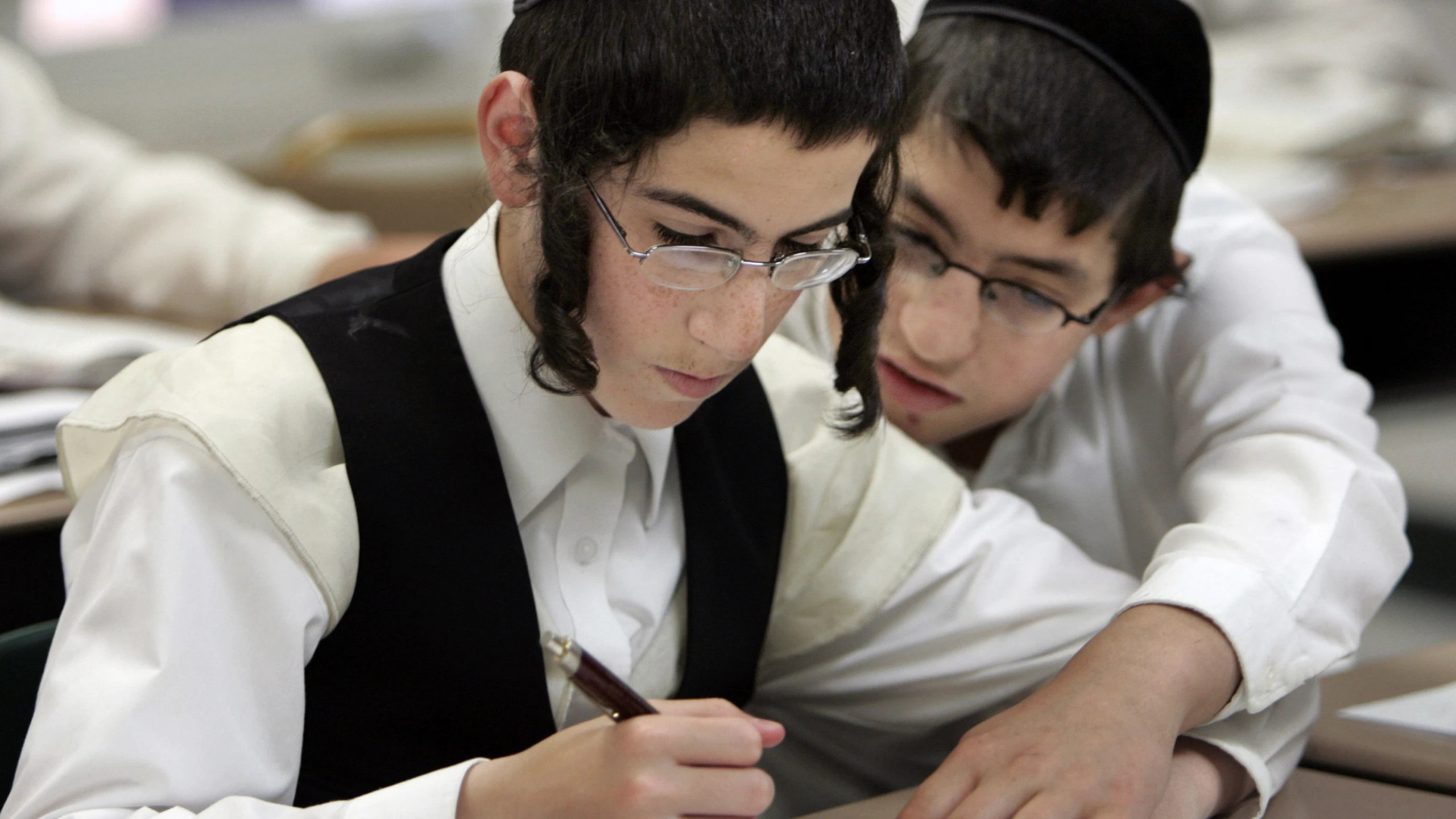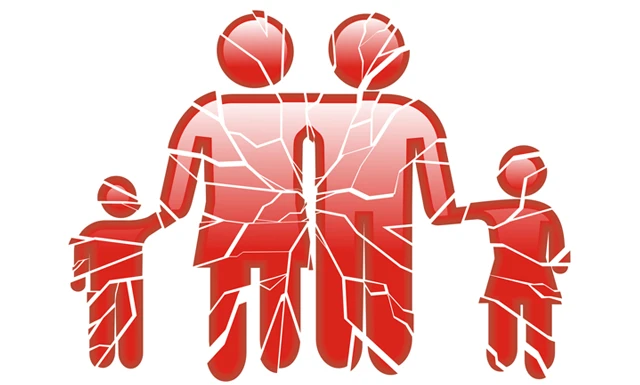When Yehudah Conversed with His Subconscious
The Longest Speech in the Torah & the Glorious Moment of Transformation
2 hr 1 min
Women's Vayigash Class
- December 31, 2019
- |
- 3 Tevet 5780
Rabbi YY Jacobson
4042 views- 10Comment
- Call-in
Listen to the class on the phone
Call +1 (845) 201-1933
When prompted, dial the ID number below.
7297 MP3 MP4 - Copy Embed
Dedicated by Pinny Brown
Class Summary:
This women's class was presented on Tuesday, Parshas Vayigash, 3 Teves, 5780, December 31, 2019 at the Ohr Chaim Shul, Monsey, NY
Tags
Show More
Categories
Show More
Women's Vayigash Class
Rabbi YY Jacobson
- December 31, 2019
- |
- 3 Tevet 5780
- |
- 4042 views
Dedicated by Pinny Brown
Related Classes
Please help us continue our work
Sign up to receive latest content by Rabbi YY
Join our WhatsApp Community
Join our WhatsApp Community















Please leave your comment below!
Elenor -5 years ago
Why didn’t the brothers agologize to Yossef ? He gave them the opportunity to apologizes. And they were sorry. Why did they not apologize?
Reply to this comment.Flag this comment.
chaya -5 years ago
wow
i just finished listening. wow! i've never heard a shiur like this one. I always knew the medrash about the rope and the pail, but never realized it was an inner conversation between himself and his soul
Reply to this comment.Flag this comment.
sara -5 years ago
Yehuda Conversed with His Subconscious
Such a great shiur. I heard you say that the word "father" was said 14 times in Yehuda's monologue. And that when a word is used that many times there is a theme connected to it. I noticed that the word "servant" - my servant, your servant was said 13 times. Is there a thematic explanation for the use of that word so many times as well?
Reply to this comment.Flag this comment.
Abraham -5 years ago
Amazing! Is there a Source Sheet for this one?
Great Shuir as always! (Even better this time).
Thank you so much!
H' should give you lots of Koach to continue this Shurim and spreading his loving name around the world.
Is there a Source Sheet for this one?
Reply to this comment.Flag this comment.
Ken -5 years ago
Your videos, your whole system is very uplifting and inspiring to me. You certainly are YHWH's People! I spent 2 months on study tour of Israel in 1973. I majored in Biblical Studies in college and took 5 yrs of Hebrew course in seminary. I am christian. I believe the Scriptures...they tell me you are God's People! ... Shalom! :)
Reply to this comment.Flag this comment.
Anonymous -5 years ago
if you truly believe we are G-ds people then you should trust us when we inform you that christianity is full of errors.
Reply to this comment.Flag this comment.
Kiddush Hashem -5 years ago
Ken, please do not take Anonymous's insensitive statements to heart. They are not representative of the whole. It is wonderful that you are able to explore and connect! Wishing you lots of luck!
Reply to this comment.Flag this comment.
Anonymous -5 years ago
it's great that he wants to learn Torah.
to pretend he's not involved in Avodah Zoroh is not helping him.
Reply to this comment.Flag this comment.
Kosher Latkes -5 years ago
Dear Anonymous.
I want to bring up a little story i really like.
Abraham gave shelter to a stranger, like he did so often. While they two had a conversation with eachother, it unfolded that the stranger was involved in Avodah Zarah. Abraham got very furious, and chased the stranger away. HaShem spoke to Abraham: -My good Abraham. Why did you chased him away? I already tolerated him several years on this earth, and you fail by tolerate him for a couple of hours?- Abraham searched for the stranger and brought him back to his warm hearted tent.
And can you say what'll change in the heart from this stranger, when you bring him patience, tolerance and love? So he can do his very own journey through the desert and grow. Nothing will change in the good and sustainable when you bring inpatience and frustrated feelings to another person. To a precious creation of HaShem.
Kol Tuv, my friend.
Reply to this comment.Flag this comment.
Anonymous -5 years ago
it's telling that Ken chose to identify as "christian" he could have identified as "non-jew", then i wouldnt have replied.
Rav Moshe Feinstein warns that christians have realised that converting Yidden through violence isn't acceptable anymore so they approach us with compliments, kindness and requests for dialogue, their intentions are the same: to tear us away from the Aibishter.
i'm not "impatient" and "frustrated" i'm realistic. you should see the madness Rav Tovia Singer is dealing with in Eretz Yisoel:
https://www.youtube.com/watch?v=5Xf6efSw8vw
https://www.youtube.com/watch?v=myKv-vz_KAI
when Avrohom Avinu brought him back to his home he didn't indulge his Avodah Zoroh he explaned to him the true path.
Reply to this comment.Flag this comment.
Kosher Latkes -5 years ago
Do you think that Abraham only explained the good to the stranger through words? I believe that he also explained it to him with his actions, his whole energy... sure, also with words.
But to go the first step, you need to invite. And invitation can be a welcoming smile. You can explain the right way to Ken, if you like. But what i see is that you maybe chasing him away and give strength to something not so good, than inviting him 'to your home' and 'explain the right way'.
We need strength (call it realism if you want) for our goals, but also our heart to go on in the right direction while we are on this earth.
Maybe you want to discuss or talk via mail? Because i see this space is limited to answer comments. And nothing is easier than get a anonym eMail to talk. Please let me know, i think it could be enriching for us both.
all the best to you
Reply to this comment.Flag this comment.
Kosher Latkes -5 years ago
Ken, your comment really made me smile. Shalom to you! :)
Reply to this comment.Flag this comment.
Rachele -5 years ago
Reply to this comment.Flag this comment.
Anonymous -5 years ago
Geniua as usual. Thank you so so much for simplifying life altering ideas and laying them before us like a set table- all the intricacy and nuances in such relevant terms. Chizku VeImtzu!!
Are there notes or handouts available??? Would you be so kind as to send them to [email protected].
THANK YOU!
Reply to this comment.Flag this comment.
Anonymous -5 years ago
דָּבָר אַחֵר, וַיִּגַּשׁ אֵלָיו יְהוּדָה וגו', כְּתִיב (משלי כ, ה): מַיִם עֲמֻקִּים עֵצָה בְלֶב אִישׁ וגו', לִבְאֵר עֲמֻקָּה מְלֵאָה צוֹנֵן וְהָיוּ מֵימֶיהָ צוֹנְנִין וְיָפִין וְלֹא הָיְתָה בְּרִיָּה יְכוֹלָה לִשְׁתּוֹת הֵימֶנָּה, בָּא אֶחָד וְקָשַׁר חֶבֶל בְּחֶבֶל וְנִימָה בְּנִימָה מְשִׁיחָה בִּמְשִׁיחָה וְדָלָה הֵימֶנָּה וְשָׁתָה, הִתְחִילוּ הַכֹּל דּוֹלִין הֵימֶנָּה וְשׁוֹתִין, כָּךְ לֹא זָז יְהוּדָה מֵשִׁיב לְיוֹסֵף דָּבָר עַל דָּבָר עַד שֶׁעָמַד עַל לִבּוֹ.
The cold water in the well is deep inside and that water represents that strength to overcome our mistakes and to turn ourselves around and it takes many ropes to pull out of our stubborn way and if we our successful we can share our delicious waters with all the people around us.
Reply to this comment.Flag this comment.
Anonymous -5 years ago
The medresh writes:
דָּבָר אַחֵר גַּאֲוַת אָדָם תַּשְׁפִּילֶנּוּ, זֶה יוֹסֵף שֶׁהִנְהִיג שְׂרָרָה, שֶׁהָיוּ אוֹמְרִים לוֹ אֶחָיו לְפָנָיו עַבְדְּךָ אָבִינוּ, וְהָיָה שׁוֹתֵק, לְפִיכָךְ נִקְרָא עֲצָמוֹת בְּחַיָּיו, שֶׁנֶּאֱמַר (בראשית נ, כה): וְהַעֲלִתֶם אֶת עַצְמֹתַי מִזֶּה. וּשְׁפַל רוּחַ יִתְמֹךְ כָּבוֹד, זֶה יְהוּדָה שֶׁהִשְׁפִּיל עַצְמוֹ לִפְנֵי יוֹסֵף בִּשְׁבִיל בִּנְיָמִין (בראשית מד, יח) (בראשית מד, לב) (בראשית מד, לג): יְדַבֶּר נָא עַבְדְּךָ דָּבָר, כִּי עַבְדְּךָ עָרַב אֶת הַנַּעַר, וְעַתָּה יֵשֶׁב נָא עַבְדְּךָ וגו'. אָמַר רַבִּי בֶּרֶכְיָה הַכֹּהֵן בַּר רַבִּי בְּשֵׁם רַבִּי לֵוִי, אָמַר הַקָּדוֹשׁ בָּרוּךְ הוּא יְהוּדָה אַתָּה הִשְׁפַּלְתָּ עַצְמְךָ מִפְּנֵי אָחִיךָ הַקָּטָן הֵימֶךָ, חַיֶּיךָ כְּשֶׁיּוּקַם הַמִּשְׁכָּן וְיָבוֹאוּ הַשְּׁבָטִים לְהַקְרִיב, אֵין אֶחָד מֵהֶם מַקְרִיב רִאשׁוֹן לְפָנֶיךָ, אֶלָּא חוֹלְקִים לְךָ כָּבוֹד וְאַתָּה הוּא שֶׁתַּקְרִיב רִאשׁוֹן, הֲדָא הוּא דִכְתִיב (במדבר ז, יב): וַיְהִי הַמַּקְרִיב בַּיּוֹם הָרִאשׁוֹן וגו' לְמַטֵּה יְהוּדָה וגו'.
How do we explain yosefs behavior that now it seems he does not have concern for "avi" (according to his level)?
Reply to this comment.Flag this comment.
Anonymous -5 years ago
This presentation was יְפֵה תֹּאַר וִיפֵה מַרְאֶה as well as your other speeches!
Reply to this comment.Flag this comment.